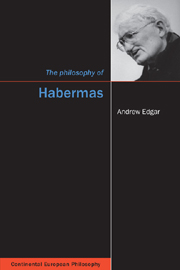3 - The idea of critical theory
Summary
Introduction
After his return to the University of Frankfurt, Habermas published a series of works that brought new focus and coherence to his critique of positivism and his understanding of exactly what is entailed by “a theory of society conceived with a practical intention” (TP: 1). At the core of this work is the attempt to counter “scientism”, the tendency of positivism to regard the methods of the natural sciences as the only legitimate form of meaningful inquiry (KHI: 4). On the Logic of the Social Sciences, published in 1967, responds to the dominance of scientism in the philosophy of the social sciences by reviewing a “spectrum of nonconventional approaches” to philosophy and social theory, including the philosophy of language, hermeneutics and phenomenology (LSS: xiii), which might facilitate the rethinking of the nature of sociology as a discipline.
In 1968 Habermas published a collection of five essays, Technik und Wissenschaft als “Ideologie”. The three central essays, “Technology and Science as ‘Ideology’”, “Technical Progress and the Social Life-World”, and “The Scientization of Politics and Public Opinion” (TRS: 50–122), may be seen to work out the critique of positivism in terms of the social and political relationships that hold between positivism and contemporary capitalism. The first and last essays, which frame the collection as a whole, provide the initial account of a theory – the theory of cognitive interests – that would be articulated in the other major publication of 1968, Knowledge and Human Interests.
- Type
- Chapter
- Information
- The Philosophy of Habermas , pp. 56 - 101Publisher: Acumen PublishingPrint publication year: 2005

